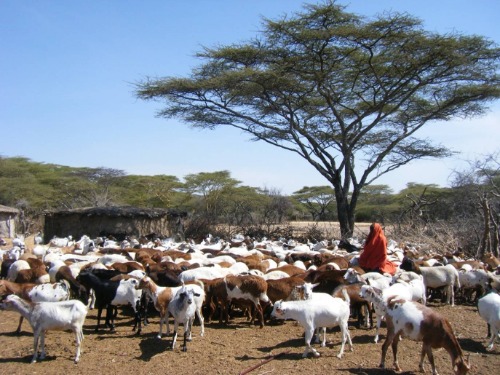Working towards the global eradication of Peste des petits ruminants: a modelling approach
Peste des Petits Ruminants (PPR) is a viral disease representing a major burden for sheep and goat farmers across Africa and Asia. It has been targeted by the OIE and FAO for eradication by 2030. The global eradication strategy heavily relies on mass vaccination programmes, but these are costly and difficult to implement in the field. In order to increase the likelihood of success of the eradication programme, vaccination campaigns need to be optimised, and tailored to local epidemiological contexts.
Informing the design of these vaccination campaigns is the objective of a new CASE-funded PhD studentship involving the RVC and APHA. Beth Savagar, with support from Guillaume Fournié, Bryony Jones (RVC) and Mark Arnold (APHA), will develop mathematical models simulating the spread of PPR virus in sheep and goat populations in East Africa, a region where the virus is endemic. The models will aim to estimate the level of PPR transmission in various husbandry systems, and to design feasible vaccination strategies which would allow the eradication of this disease in those settings. A model will also be developed to explore the potential impact of that a PPR incursion could have on the UK sheep and goat populations.
Beth says “I am excited to be working on a project of such international importance and to contribute towards the global eradication of PPR. I am fortunate to be supported by the collaboration between the RVC and APHA which provides excellent support through access to a breadth of expertise and experience.”


